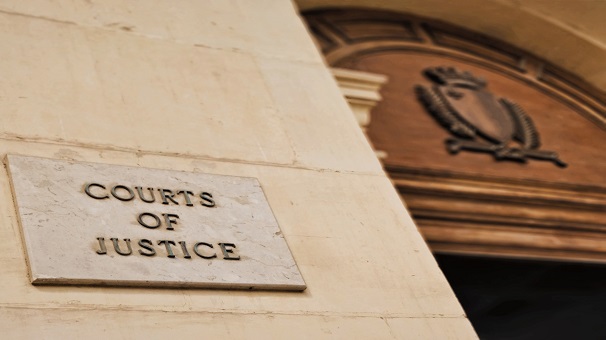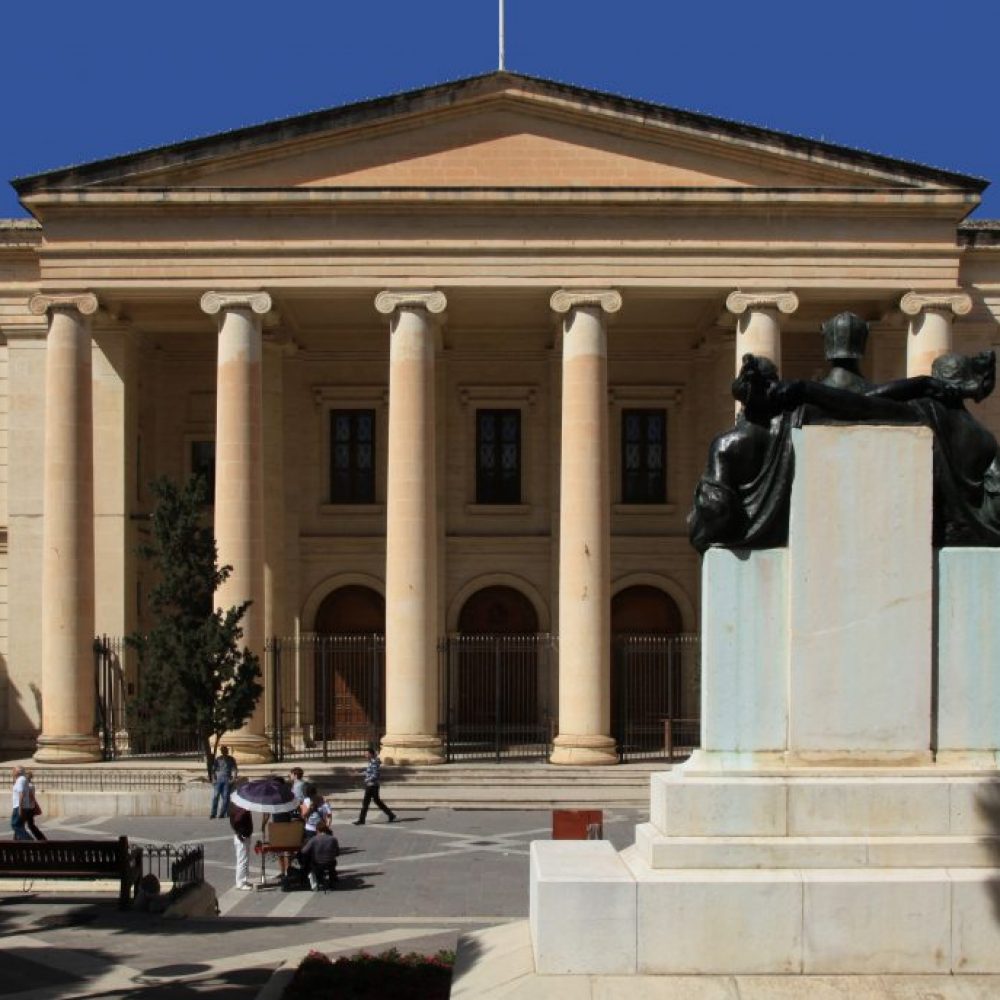Malta’s courts are about to become a lot more secretive thanks to a legal notice granting a handpicked State employee the power to decide which court records are published online and which are hidden.
LN 456, published on 3 November, does not include clear criteria upon which the court’s director-general is supposed to base these decisions.
All six of Malta’s independent media houses, along with the Daphne Caruana Galizia Foundation and Access Info Europe, have signed a letter to the prime minister urging the government to scrap the new law, which they see as a danger to public accountability.
“The online publication of court judgements fulfils the Maltese state’s Constitutional and ECHR obligation to ensure that all stages of a trial are public, including the judgement,” the letter said. “A State that denies journalists and civil society an essential tool – the ability to research judgements – casts doubt on its commitment to transparency.”
Despite campaigning on a platform of transparency, meritocracy and good government, Malta has plummeted a staggering 36 places in Reporters Without Borders World Press Freedom Index since the Labour Party took power in 2013.
This new legal notice is largely based on a concept known as ‘the right to erasure’ or ‘the right to be forgotten’, established by the European Court of Justice in May 2014. It refers to an individual’s right to ask commercial websites with search engines to delete personal data from their registers in specific circumstances.

Former European Court of Human Rights judge Giovanni Bonello was scathing in his condemnation of Malta’s “reprehensible” attempt to use it to justify the erasure of online court records.
“The Legal Notice allows the director-general to be utterly arbitrary in what he decides,” he said. “Arbitrary power is the usher of tyranny. We must not forget that the Constitution and the European Convention on Human Rights mandate, as a prerequisite to a fair trial, that all the stages of the trial should be public – including the judgement.”
The former judge’s concern over the separation of powers between the judiciary and the executive is especially pertinent in Malta. The director-general empowered with the ability to erase online court records is a State employee who answers directly to the justice ministry.
Malta’s current Justice Minister, Edward Zammit Lewis, has faced repeated calls for his resignation since his close personal friendship with Yorgen Fenech, the man on trial for masterminding the murder of investigative journalist Daphne Caruana Galizia, was exposed in September 2020.
The roughly 700 WhatsApp chats found on Fenech’s phone revealed that the justice minister’s fawning attention-seeking messages continued after Fenech was exposed as the owner of 17 Black, an offshore entity linked to the corrupt Electrogas power station project that Caruana Galizia was investigating when she was killed.
The publication of Legal Notice 456 is not the first time this government has used the ‘right to erasure’ to justify tampering with court records.
In May 2019, then Justice Minister Owen Bonnici told parliament that 176 requests had been filed for court judgements to be removed from the public domain, and 112 were accepted. The year before, Bonnici admitted he had authorised the court’s director-general to remove online judgements when requested by individuals when he deemed fit.
What sort of records are quietly vanishing?
A former associate of Panama Papers minister Konrad Mizzi who dished out millions of euros in taxpayers’ money to a close group of party organisers as director of events at the Malta Tourism Authority had his sentences removed from the public domain. The Shift has revealed how the former political canvasser had been entrusted to handle millions of euros under the auspices of the MTA despite having a criminal record that involved the embezzlement of funds and falsification of documents.
Court records are not the only ‘dirty laundry’ being targeted for erasure by public officials. Similar deletions from the public record occurred in a completely different realm earlier this year.
While the government was lobbying frantically to stay off the FATF greyest of countries at high risk of money laundering and terrorist financing, the Malta Business Registry quietly deleted the online records of hundreds of thousands of shell companies which had been dissolved or liquidated.
Their online system was also altered to make a key change to the ‘search’ function. It is no longer possible to search for directors’ involvement in Maltese companies, which makes the job of financial compliance officers and those investigating financial crimes much more difficult.
Lawyer Michael Zammit Maempel pointed out another risk of an increasingly secretive court.
“The implication of all this is that, on the one hand, we have the FIAU, Moneyval and the FATF asking professionals such as myself to make sure that we check and double-check the track records of anyone who walks through the doorstep of their office and on the other you have the ministry of justice-making this process more opaque,” he said, referring to background checks for prospective clients.
“Checking online judgments would have been one way of doing this work transparently because it would have been available. Now, we are leaving this discretion in the hands of someone who should not be exercising this discretion.”
The judiciary had been seen by many as the last bastion of impartiality in disgraced former prime minister Joseph Muscat’s takeover of Malta’s institutions, but even the courts have been increasingly politicized through the deliberate use of the power to appoint judges.
The governing Party wields enormous power in Malta. Every appointee from every institution that matters is appointed — directly or indirectly — by the prime minister and is indebted to him for their job. Muscat used this power to appoint compliant yes-men to crucial bodies, including the police commissioner, the Armed Forces, the Attorney General and key regulatory institutions like the Malta Gaming Authority.
After being tasked by an increasingly alarmed Council of Europe to conduct a review into the country’s institutions, the Venice Commission stated in very clear terms that the Prime Minister should not have the power to appoint judges. Muscat agreed with their recommendations — and then rushed through three judicial appointments before the system could be reformed.
Judge Bonello was blunt about the dangers posed by such unfettered power in a podcast interview with Paul Caruana Galizia for Tortoise Media.
“The executive power of the State, which means the Prime Minister and the Cabinet, have virtually taken over all the other institutions which were meant to control the Executive. The Attorney General, the Commissioner of Police, parts of the judiciary, are more than suspect. They give the impression they are in the pocket of the persons they are supposed to keep in check.”
When asked how it had gone so wrong, he said, “A system is as good as the people who put it in practice. It matters in any circumstance, but particularly so when one of the chief suspects of ill-doing is the government itself, is the executive itself. It is under a suspicious pall of being in league with major criminals.”
Thanks to Malta’s new directive on court records, those criminals may have gained the ability to erase their criminal past.
The following project is weekly Maltese Roundups prepared by The Shift News (Malta) offering the latest news in the Daphne Caruana Galizia case.

